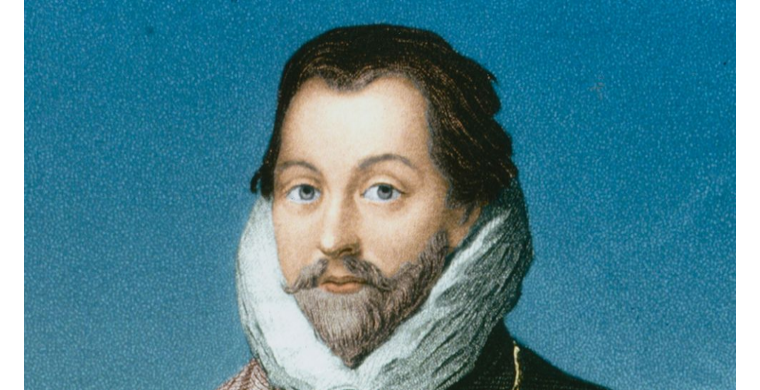SIR FRANCIS DRAKE: REFORMED ANGLICAN
By Roger Salter
Special to Virtueonline
www.virtueonline.org
May 29, 2023
In the current climate of outrage against England, its past and dubious sentiments and behaviors (all of which need to be analyzed as objectively as possible), moderns tend to judge without reference to cultural context and the accepted values, assumptions and norms that adhere to any society that lacks the means to self-critique accurately and exhaustively. It is obvious and inevitable that human life and thought is developmental, and hindsight makes approval and disapproval a matter of plain simplicity and easy verdict.
It is a pity that our generation of agitated complaint and moral superiority will never hear the assessment of future generations of the impurities and prejudices that enmesh ourselves. We are all creatures of a matrix that shapes us more than we are aware and assume as orthodox. There is much pharisaism and snobbery in our contemporary backward glance. There is much ignorance of the current factors that condition our current outlook; the unconscious that springs to our partial consciousness. Every historian requires information, intelligence, discernment and empathetic identification within the scope of their research and carefully considered report. We forget the influence of subjective impressions that mold our limited perspective on a reality too vast to encompass.
Sir Francis Drake is an unfortunate victim of historical revision. His statue in his Devonshire home town is threatened with removal and destruction. The great navigator is demoted to the rank of vicious and despised avaricious pirate. He has been recast as the fiery dragon of cruel and roughshod treatment of Caribbean blacks whom he ruthlessly employed in some of his daring exploits as an adventurer. Recent accounts of his life and deeds contain nothing positive or meritorious of a life once admired and extolled as woven from a fallen nature, conscious and repentant of sin and reliant, as we all should be, of absolute dependence upon sovereign grace.
Drake was the product of an Anglican Puritan family and pious upbringing. Scripture and ardent prayer were familiar to him. He was the firm friend, Christian brother and admirer of the leader of the Huguenot movement that sought the advance of reformation in France [followers of Jean Calvin], Gaspard Coligny, a martyr for the cause on bloody St Bartholomew's Day. Sir Francis never took to sea without the Admiral's gift of the Book of Psalms, the French version, firmly placed within the bookshelf of the English captain's cabin.
It has to be said that Drake's concern for his crew was pastoral and his increasing relationships with rebel slaves in the Caribbean were increasingly respectful and cordial. He grew to value them in his sorties against the Spanish. The English and Spaniards were bitter rivals and enemies. Drake had the approval of the Virgin Queen [right or wrong] to relieve the Spanish vessels of the stolen plunder they were ferrying from violent exploitation of the South American populace, and whatever we might make of his decisive action against a traditional enemy and in favor of Queen and country he was not simply a crude and guilty brigand or marauder of the ships of the "Spanish Main'.
He served, as he saw it, a useful purpose, in a complex and disordered world. This is not to clear him of a valid moral charge of injustice but an explanation of the circumstances he had to reckon and wrestle with as a vulnerable mortal [our daily struggle as believers]. If a searching light were trained upon ourselves, just how honorable would our spruced up Christian commerce, politics and family ethics prove to be in our time of great human imperfection and subtle temptation? Just how straight are the details of deals crafted within or upon church sites following half-hearted acts of worship on the Lord's Day? Just how honorable are the protesting organizations and persons who demolish our cumulative identity in their very evident hatred and haste not to comprehend the prevalent forces and nuances of previous ages? A legalistic mind in any circumstances is often very lazy in arriving at conclusions. In an odd sort of way we are continually endeavoring to justify ourselves by negative comparison, via self-righteousness. We are constantly striving for personal justification and amelioration of guilt. Justification by faith has wider implications than its principal soteriological import.
Reformed Anglicans should admit Sir Francis Drake to the pantheon of reformational worthies. He was a true believer and defender of the Gospel of the Lord Jesus. He sought to secure the survival and strengthening of classical Protestantism (not endearing to our current godless mindset and culture} and the very first celebration of the Lord's Supper in North America was pastorally initiated by him, for the spiritual welfare of the men under his command, by the sending of his chaplain ashore, just where San Francisco is situated today, to observe the sacramental benefit of the Lord's Supper. Those of us, who by the grace of God, will attend the Banquet of the Lamb, shall surely sup with Francis Drake no longer Sir but Saint.
The Rev. Roger Salter is an ordained Church of England minister where he had parishes in the dioceses of Bristol and Portsmouth before coming to Birmingham, Alabama to serve as Rector of St. Matthew's Anglican Church














